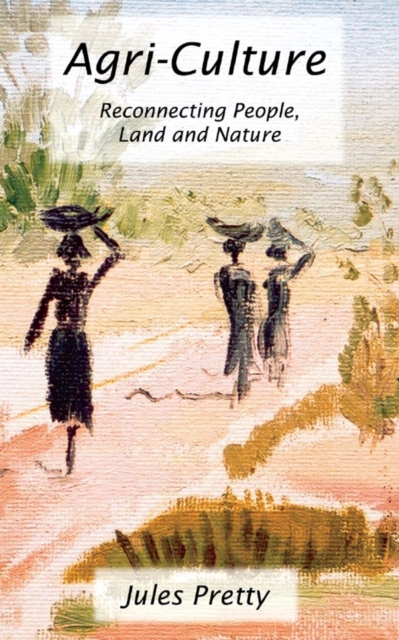
Agri-Culture : Reconnecting People, Land and Nature PDF
by Jules Pretty OBE
Description
'Refreshingly fluent narrative, brimming full of stories and metaphors' Tim O'Riordan, University of East Anglia, UK 'A great balance between storytelling and analysis which points to the critical need for gaining control over resources' Jacqueline Ashby, CIAT, Colombia 'Full of supporting evidence and clear arguments' Norman Uphoff, Cornell University, US 'A wonderful book, put together with such vision and passion' Mark Ritchie, Institute of Agriculture and Trade Policy, US 'A superb volume.
This is a valuable monograph that all policy-makers, scholars and farmers must read to understand their roles and responsibilities' Vo-Tong Xuan, Angiang University, Vietnam 'Beautifully written.
The implications of the book's ideas are deep and extensive' Julia Guivant, University of Florianopolis, Brazil Something is wrong with our agricultural and food systems.
Despite great progress in increasing productivity in recent decades, hundreds of millions of people remain hungry and malnourished, and further millions suffer for eating too much food or the wrong sort. Agri-Culture envisages the expansion of a new form of food production and consumption founded on more ecological principles and in harmony with the cultures, knowledges and collective capacities of the producers themselves.
It draws on many stories of successful agricultural transformation in developing and industrialized countries, but with a warning that true prosperity will depend on the radical reform of the institutions and policies that control global food futures, and fundamental changes in the way we think.
The time has come for the next agricultural revolution.
Information
-
Download - Immediately Available
- Format:PDF
- Pages:280 pages
- Publisher:Taylor & Francis Ltd
- Publication Date:17/06/2013
- Category:
- ISBN:9781136572128
Other Formats
- Paperback / softback from £36.99
- EPUB from £33.29
- Hardback from £130.00
Information
-
Download - Immediately Available
- Format:PDF
- Pages:280 pages
- Publisher:Taylor & Francis Ltd
- Publication Date:17/06/2013
- Category:
- ISBN:9781136572128






